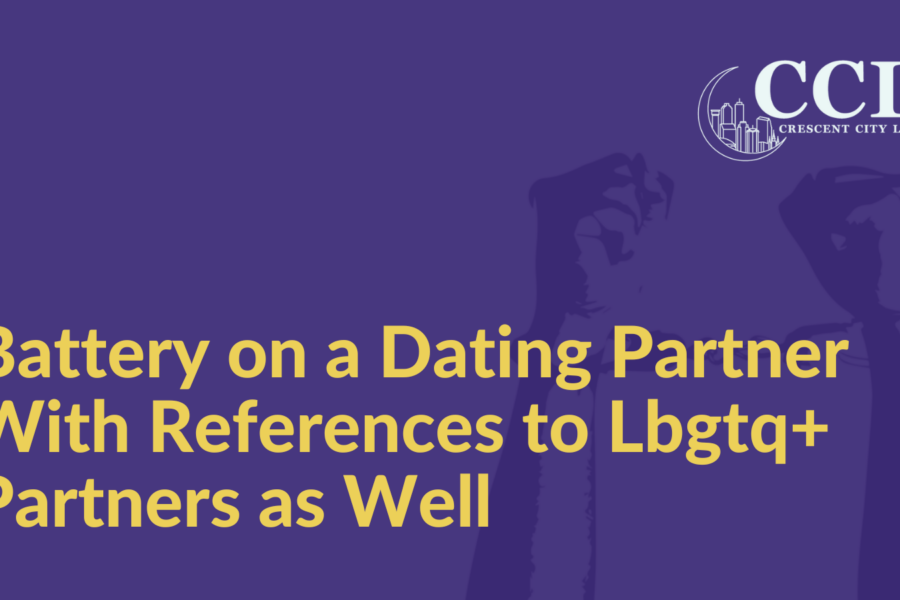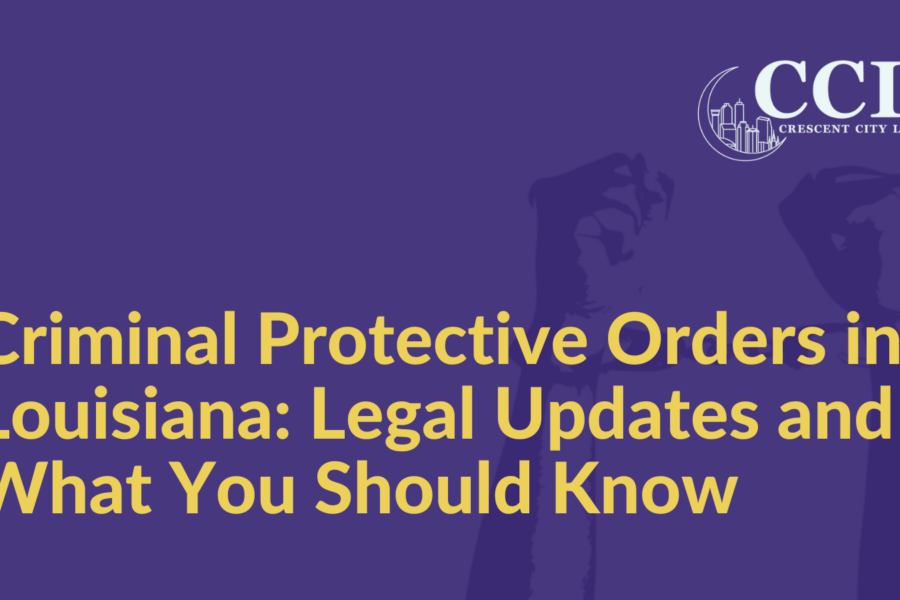At Crescent City Law, we stay up to date on legal developments that affect our clients across New Orleans and the greater Louisiana area.
With a strong track record of defending clients in criminal matters and protecting their rights, we’re here to break down the latest changes from the Louisiana Protective Order Registry (LPOR) in a way that’s clear, useful, and focused on what matters most to you.
If you need immediate help or have questions, you can contact us here, learn more about our team, or explore our full range of criminal defense services.
What Is the Louisiana Protective Order Registry (LPOR)?
The LPOR is a statewide database that collects and manages protective order information from courts, law enforcement, and process servers across Louisiana. It’s managed by the Judicial Administrator’s Office of the Louisiana Supreme Court and is designed to:
- Improve law enforcement response to domestic violence
- Increase safety for victims and their children
- Provide instant access to protective order records
Federal funding from programs like the Violence Against Women Act (VAWA) and the Crime Information Technology Act (CITA) supports the LPOR, along with collaboration from Louisiana State Police.
What’s New in 2025?
The 2025 LPOR updates reflect significant changes in how protective orders are entered, modified, and dissolved.
These changes stem from recently passed 2024 legislation and were highlighted during a Continuing Legal Education session attended by legal professionals on May 9, 2025.
Here are the key areas of change:
1. Updated Civil Protective Order Laws and Forms
New forms and guidelines now apply to protective orders related to:
- Domestic abuse
- Dating violence
- Stalking
- Sexual assault
Why this matters: If you’re seeking protection or responding to a civil protective order, using the most current forms is critical. Mistakes in form submission can delay your case or result in improper enforcement.
2. Criminal Protective Order Adjustments
Criminal courts now have updated procedures regarding issuance and enforcement of protective orders. These include:
- Streamlined entry into the LPOR database
- New timelines for modifying or terminating existing orders
Tip: If you’ve been charged with a crime involving allegations of domestic violence, these updates could affect your case. An attorney can help ensure the court follows proper protocol.
3. Firearms Prohibitions Under Civil Orders
The 2025 changes further clarify when firearms must be surrendered or when individuals are prohibited from possessing them after a civil protective order is issued.
Key points include:
- Mandatory firearm relinquishment timelines
- Coordination with law enforcement to ensure compliance
4. Firearms Prohibitions Under Criminal Orders
Similarly, criminal protective orders now come with more stringent and clear firearms restrictions. Courts must notify affected individuals and ensure follow-through with firearm bans.
Why this matters: Improper handling of firearm restrictions can result in additional criminal charges. Having an attorney helps you stay compliant and avoid unnecessary legal trouble.
5. Form Requirements and Transmission Procedures
A major emphasis in the 2025 update is on properly transmitting forms to the LPOR. Some common issues addressed include:
- Correcting outdated court forms
- Ensuring orders are transmitted promptly and accurately
Courts, attorneys, and self-represented parties must all be aware of the correct procedure.
Why These Changes Matter for You
Whether you’re a survivor seeking safety or someone accused of a criminal offense, knowing how protective orders work—and how they’ve changed—can make all the difference. Mistakes in handling these orders can lead to enforcement issues, legal delays, or criminal consequences.
An attorney who knows the current laws and local procedures in New Orleans can help ensure your side is heard and your rights are protected. From filing the right documents to representing you in court, Crescent City Law can help you navigate the process.
What to Expect in Future Blog Posts
This blog is part of an ongoing series diving deeper into the 2025 LPOR Quick Reference Guide (v.15.1). Future posts will cover:
- Specific changes in protective order forms
- How to comply with firearms restrictions
- Step-by-step breakdowns of LPOR filing procedures
- Real-world implications of these updates in New Orleans courts
Make sure to follow along so you stay informed.
Final Thoughts: Get Help Understanding Louisiana’s Protective Order Laws
The LPOR plays a vital role in protecting individuals while ensuring due process. With the 2025 updates now in effect, it’s more important than ever to understand your rights and responsibilities when involved in a protective order case.
Need help navigating a protective order issue in New Orleans? Call Crescent City Law at 504-264-9492 or contact us here. You can also visit our homepage or explore more legal updates on our New Orleans criminal law blog.
We’re here to help protect your rights and guide you through every step of the legal process.





